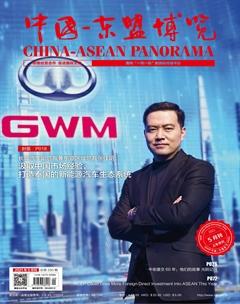世界的繁荣离不开中国
Dulyapaween Kronsaeng 黄怡哲
不久前,中国审议通过了“十四五”发展规划,中国经济问题研究专家、泰国法政大学经济学院阿顺诗·帕尼察叁副教授在接受本刊記者专访时表示,中国“十四五”规划为其国民经济发展远景制定了目标和方向。她认为此次“十四五”规划也可视为“经济稳定规划”,中国追求的更多是稳定发展,尤其是从技术安全、食品安全、公共卫生安全三方面推动经济稳定发展,而不是单纯追求经济高增速。
以科技自立自强支撑新发展格局
阿顺诗副教授分析说,中国经济政策的制定要“稳”,新冠肺炎疫情冲击、中美贸易摩擦等外部风险提升,可能影响中国未来长期的发展。为此,中国将更多地依托内需,减少对外依赖,尤其是核心技术。
“过去,依赖国外技术是中国科技业的软肋,同时还伴随着风险。例如,半导体等关键核心技术遭遇瓶颈,使中国对此体会更为深刻。中国从中汲取教训,将更注重基础技术研发,通过制定《中国标准2035》,提出了到2035年成为全球技术领导者的目标。”阿顺诗副教授说。
技术安全方面,在“十四五”规划中,除了研发支出将年增7%之外,中国瞄准7大前沿领域,实现科技高水平自立自强,包括:新一代人工智能、量子信息、脑科学与类脑研究、集成电路、基因与生物技术、临床医学与健康、深空深地深海和极地探测。
“中国将加强面向国家战略需求的基础前沿和高新技术研究,强化国家战略科技力量,一旦取得成功,中国将成为世界科技强国,引领世界科技潮流。”阿顺诗副教授说。
中国经济“双循环”时代开启
突如其来的新冠肺炎疫情,让中国对食品和健康安全的关注度大幅提升,并持续出台一系列扶持农业生产的政策措施,包括进一步扩大粮食种植面积。即使部分农产品生产成本高于进口,但中国仍选择依靠自己的力量养活14亿人口,让“中国饭碗”更“瓷实”。保障国内粮食安全,不论发生什么,中国都无需惧怕外部环境的压力,并加快构建国内国际双循环相互促进的新发展格局。
“新冠肺炎疫情危机和国外压力升温,促使中国更加注重经济运行求‘稳——科技自立自强,国内经济更加强劲,国民收入提高,新一代中产阶级消费崛起,掀起新的消费浪潮。”阿顺诗副教授说,“但这并不意味着中国从此就对外关上了大门,相反,中国开放的大门只会越开越大,将从最大出口国变成最大进口国。中国拥有巨大的消费群体,通过实施扩大内需战略拉动经济增长,对各国都有着巨大的吸引力,为此,世界的繁荣也需要中国。例如,泰国旅游收入高度依赖中国游客,每年泰国接待中国游客达1000万人次。”
综上所述,阿顺诗副教授认为,如何为更好地适应时代的发展和进步,抓住中国机遇,成为泰国当下面临的巨大挑战;同时要学会分散风险,实现经济平衡发展。
她指出,中国经济跨越式增长,无疑给竞争对手或包括泰国在内的制造商带来压力。但无需过于担忧,应该将压力转变为动力,以更好地实现自我调整,从中国经济新格局中寻找机遇。其中,中国消费者的购买力不可忽视,例如,泰国旅游业要由数量型向质量型转变,深挖更注重健康旅游的高端游客群体,关注老年旅游这一具有潜力的蓝海市场,也称为“银发经济”。
“此外,泰国在中国高度重视的清洁能源方面也存在无限的合作空间,这与泰国BCG经济新模式(包括生物经济、循环经济和绿色经济)相契合。如果中泰两国持续保持良好关系,泰国可在多个潜力领域与中国经济新格局寻求对接,深化合作实现双方互利共赢。”阿顺诗副教授补充道。
·来源:《TAP东盟博览》
Not long ago, China deliberated and passed the 14th Five-Year Plan. In the exclusive interview with the reporter from Thailand-ASEAN Panorama, Dr. Aksornsri Phanishsarn, Expert on Chinas Economy and Associate Professor of Faculty of Economics of Thammasat University said that the 14th Five-Year Plan sets clear goals and directions for Chinas economic development. She believes that the Plan is also a move to stabilize the economy. Instead of fast economic growth, China pursues stable development, especially economic stability boosted by technical safety, food safety and public health safety.
Support new development pattern with science and technology
Dr. Aksornsri Phanishsarn said that Chinas economic policy formulation should be “stable”, as the impact of the COVID-19, trade friction between China and the US, and other external risks may affect Chinas long-term development in the future. To this end, China will rely more on domestic demand and less on external sources, especially core technologies
“Relying on foreign technology has always been a weakness of Chinas science and technology industry and it was often accompanied by risks, especially in core technologies like semiconductor. Drawing lessons from this, China is determined to focus more on the R&D of basic technology. Through formulating China Standards 2035, China has put forward the goal of becoming a global technology power by 2035,” said Dr. Aksornsri Phanishsarn.
In technical safety, it is clear in the 14th Five-Year Plan that in addition to a 7% increase in the annual expenditure of R&D, China aims at seven leading-edge areas to achieve high-level scientific and technological self-reliance, including the new generation of artificial intelligence, quantum information, brain science and brain-like intelligent technology, integrated circuit, gene and biotechnology, clinical medicine and health, deep space, deep earth, deep sea and polar exploration.
“China will strengthen the basic frontier and high-tech research following national strategies and enhance the national scientific and technological strength. Once successful, it will become the new global science and technology power, leading the development trend,” said Dr. Aksornsri Phanishsarn.
China ushers in the era of economic dual circulation development
The outbreak of the COVID-19 has drawn peoples attention to food and health safety. A series of policies and measures to support agricultural production have been launched in China, including enlarging the area of grain cultivation. Although the cost of producing some agricultural products is higher than that of imports, China still chooses to support the 1.4 billion people on its own, making its “rice bowl” more “solid”. Ensuring domestic food security is of great importance. No matter what happens, China will withstand any pressure from the international environment and concentrate on speeding up the construction of the dual circulation development pattern, with domestic and international development reinforcing each other.
“Uncertainty brought by the COVID-19 and pressure from abroad have forced China to stabilize its domestic economic development, for example, being independent in science and technology, pursuing stronger domestic economic development, increasing national income, cultivating a new generation of middle class, and boosting domestic consumption. However, it does not mean that China has closed its door to the outside world. On the contrary, China will open its door even wider, turning to the largest importer from the largest exporter. China has a large consumer base. Through expanding domestic demand to promote economic development, its attraction to foreign countries will be even greater. Therefore, the prosperity of the world is inseparable from China. Take Thailand as an example, its tourism revenue is highly dependent on China, with 10 million of Chinese tourists coming every year.”
To sum up, Dr. Aksornsri Phanishsarn believes that to better conform to the development trend and seize the opportunities from China, Thailand needs to adjust itself, dispersing risks, and achieve balanced economic development.
She pointed out that Chinas leapfrog economic development undoubtedly brings pressure to competitors and manufacturers such as Thailand. Instead of worrying, Thailand should turn the pressure into a driving force, so as to better adjust itself and seek opportunities from Chinas new economic development pattern. For example, if Thailand wishes to transform its quantity-oriented tourism industry into quality-oriented, the high-end tourists who lay stress on health tourism should not be ignored. The senior tourism is also a potential market worth exploring.
“In addition, Thailand has unlimited space for cooperation with China in clean energy. It not only coincides with Thailands Bio-Circular-Green Economic Model or BCG, but also is highly valued by China. If China and Thailand continue to maintain good relations, Thailand can seek more cooperation with China in various potential areas, achieving mutual benefit and win-win results,” said Dr. Aksornsri Phanishsarn.
· Source: Thailand-ASEAN Panorama
· Editor in Charge: Li Min

